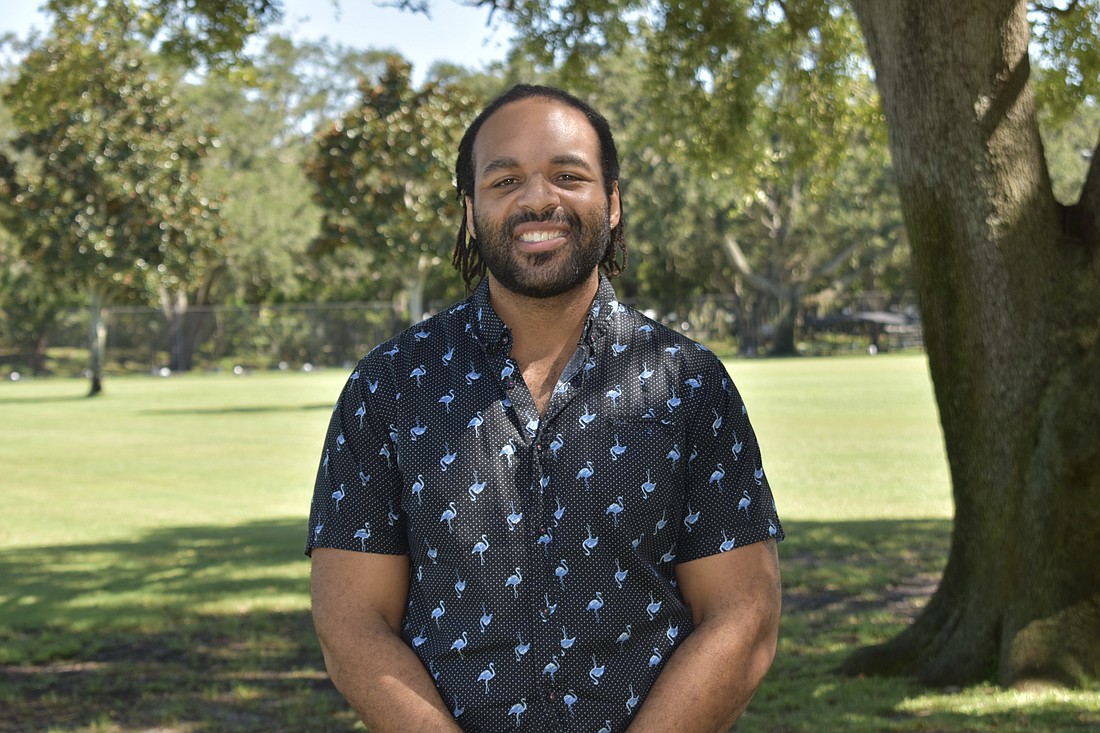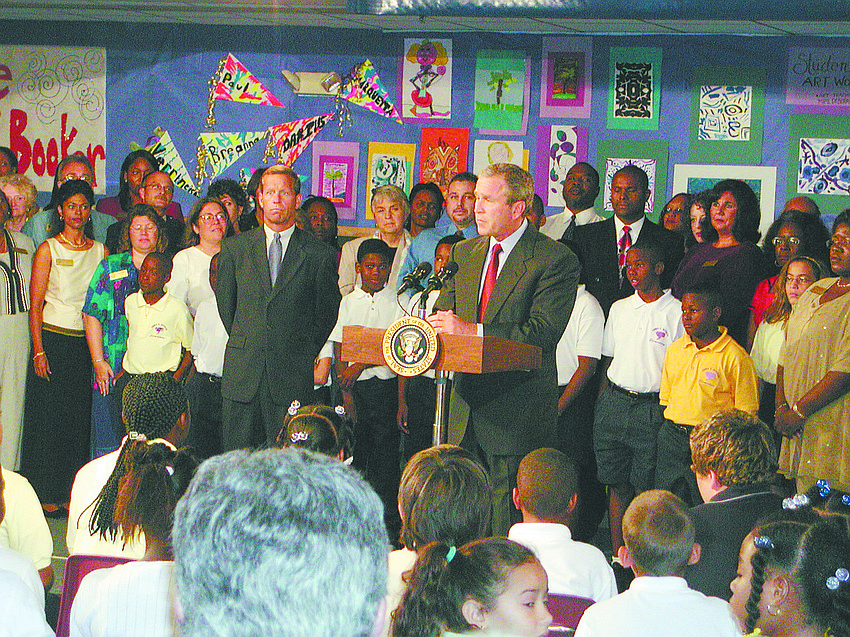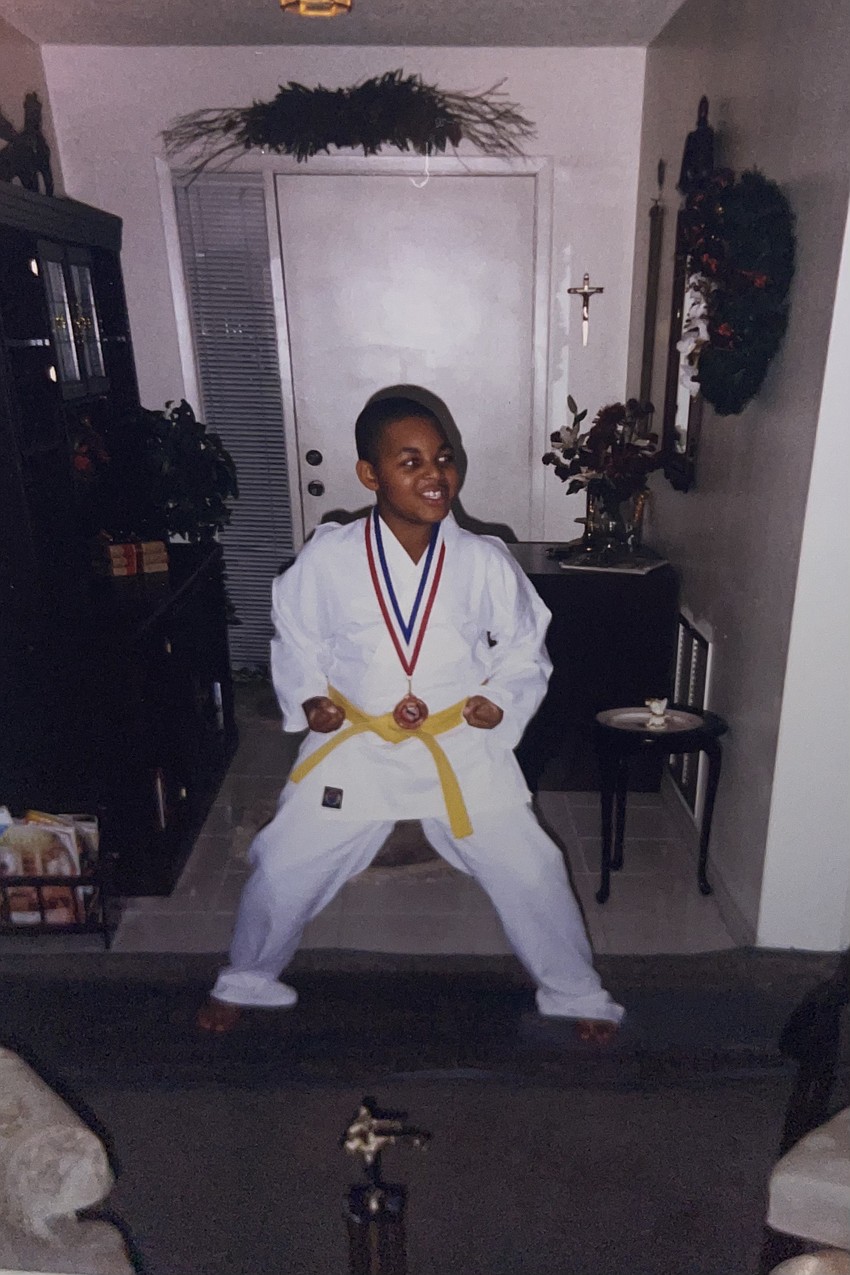- May 23, 2025
-
-
Loading

Loading

Stevenson Tose’-Rigell felt as if he had been standing in the library at Emma E. Booker Elementary for a long time the morning of Sept. 11, 2001.
The 10-year-old fifth grader had arrived early that day, passing through security in preparation for a place on the stage just behind President George W. Bush, who was visiting the school to promote the No Child Left Behind Act.
His mother, who was the school’s principal, Gwendolyn Tose’-Rigell, had raised students’ scores dramatically, bringing Booker Elementary to a plane equal to that of other schools, he said.
Before him, as he stood with other students and teachers, was what he described as a sea of people, including members of about 20 news stations.
Then, as the president entered, arriving from a reading of "The Pet Goat" with students, Tose’-Rigell recalls a scene overwhelmed by white, although he isn't sure whether it was the flashing of cameras or floodlights.
The moment had arrived. But the president’s message was nothing like what he expected to hear.
“Today we’ve had a national tragedy,” Bush announced to the crowd. “Two airplanes have crashed into the World Trade Center in an apparent terrorist attack on our country.”
Tose’-Rigell observed the gasps and shocked reactions of the crowd, as a flurry of camera flashes returned, capturing the scene and in many cases, Tose’-Rigell himself.
“It felt like the whole back of the wall just went to white, because all the flashes were just clicking, clicking like crazy,” he said.
It was a moment he would not forget, that would influence the way he understood the world from then on.
“That whole moment felt like a moment paused in time, where everything was going to change after that,” he said. “You could feel the intensity of the moment.”

Tose’-Rigell said he “definitely” felt a little hurt to see the President’s visit cut short.
The visit had been a momentous occasion for his mother and was something like a victory celebration after her battle with breast cancer in 1999 and 2000, he said.
She ultimately died from the disease in 2007.
“I was definitely proud of her,” he said, citing her appearances in two documentaries in addition to the visit. “She deserved every bit of that, and if it wasn't for her passing away, I'm pretty sure she would have done something else pretty awesome.”
As his mother was principal, he remained at school, although some parents brought their children home, worried the school would be a target of the attacks due to the president's visit.
Tose’-Rigell did not know what the World Trade Center was, but he did know it sounded important, and that if it was located at an epicenter of the country like New York City, it must be a big building.
As teachers turned on their television screens, he watched the tragedy unfold, and was surprised by what he saw: not a scrape from a plane wing or a broken skyscraper antennae, but an undeniably deliberate attack.
“This means we’re going to war?” he remembers asking a teacher. She responded that was pretty much what it meant.
Although Tose’-Rigell had long possessed a love of history, it grew stronger that day. He attributes his fascination and respect for the subject to his father, who he said has “read more books than I think a library can hold."

“My overall understanding of the world today has totally been shaped by that circumstance, and being a part of that whole thing,” he said. “New York was where the attack happened, but they trained the terrorists to fly in Sarasota. President Bush was in Sarasota. The connection between Sarasota and New York — I don't understand how it's so close, but yet so far away, but yet it was right in the backyard here.”
The events that day left him with a desire to understand the cause behind it all. What would motivate the attackers to not only kill and hurt others, but also to die themselves in the process?
It launched a quest that continued through middle and high school, as he began researching the Middle East, its culture, and its past interactions with the United States.
“I'm amazed at what people are willing to accept, and believe, and what they're willing to actually fight for and ultimately put their lives on the line for,” he said, referring not only to 9/11, but to recent events, including the Jan. 6, 2021 attack on the U.S. Capitol.
Having lived history, Tose’-Rigell also feels an obligation to stand up for the facts by debunking myths about 9/11.
“A lot of people thought the book was upside down when Bush was reading to the kids," he said. "Well, the book was never upside down."
Like his mother, he has also defended the president when it comes to the controversial seven minutes he spent when he continued to read along with students after learning a plane had hit the second tower.
“Under that circumstance, and then hearing what he’d heard in front of a classroom full of kids, he didn't do anything outrageous and act like his hair was on fire. He definitely remained calm and poised and carried on with the day,” he said.
Finally, Tose’-Rigell has his own piece to add to the historical record.
In 2019, he self-published a memoir Gwendolyn Tose’-Rigell wrote shortly after the attacks, “The 9/11 Principal." He said the book, which he is currently attempting to rebrand through a traditional publisher, offers a new perspective from someone outside New York City.
Moving forward, Tose’-Rigell, who currently works as a Realtor and lives in Bradenton, keeps an optimism about the U.S., which he calls "one of the greatest countries ever," although he does think a lot has changed over time.
“We're all pretty much right back to square one where if you look a different shade, or you're not straight, or whatever the case may be, then it's like you're the enemy," he said.
Yet there are important lessons people can learn from history, he said, including the history he has lived, which saw people coming together in support of one another.
“My hope for America is that we can come back together, and strive to be that great country that we tried to be right after 9/11.”